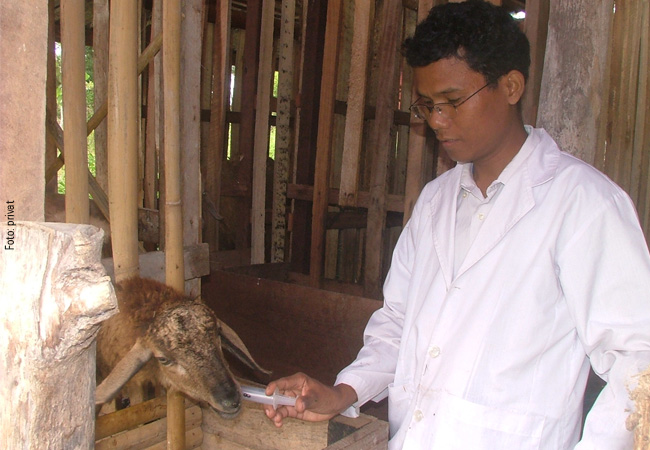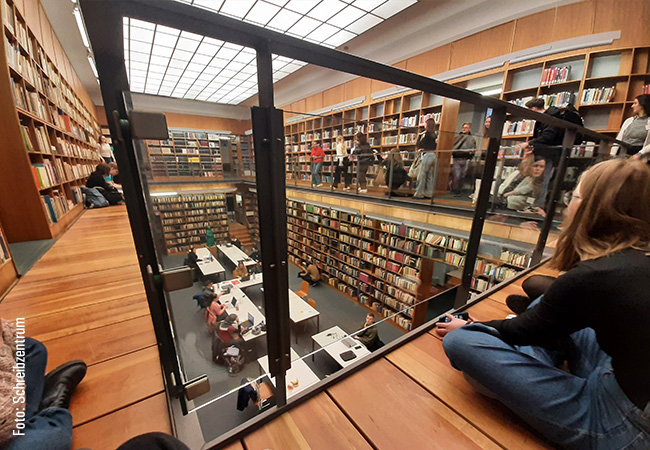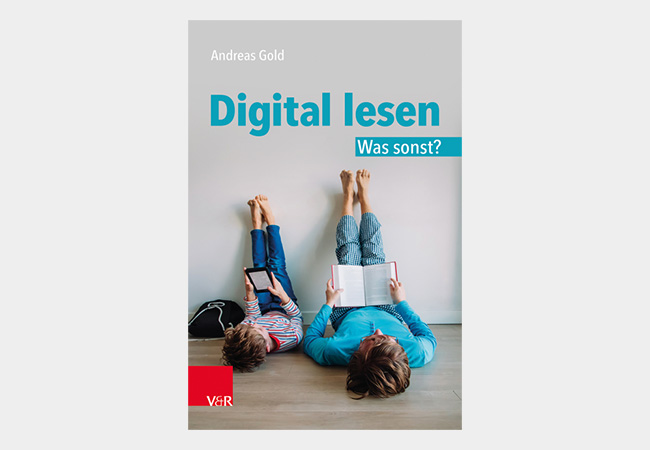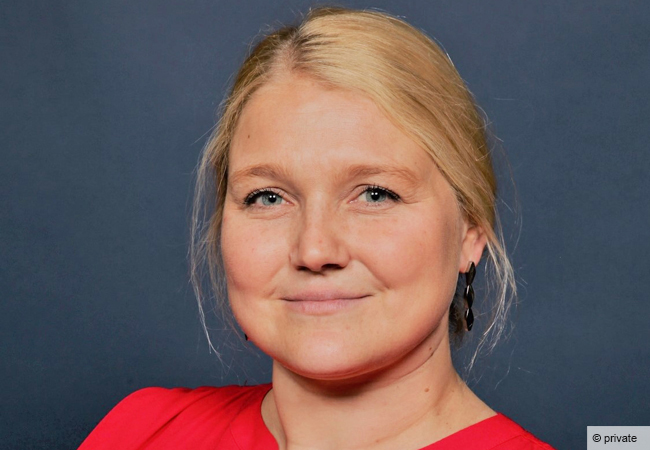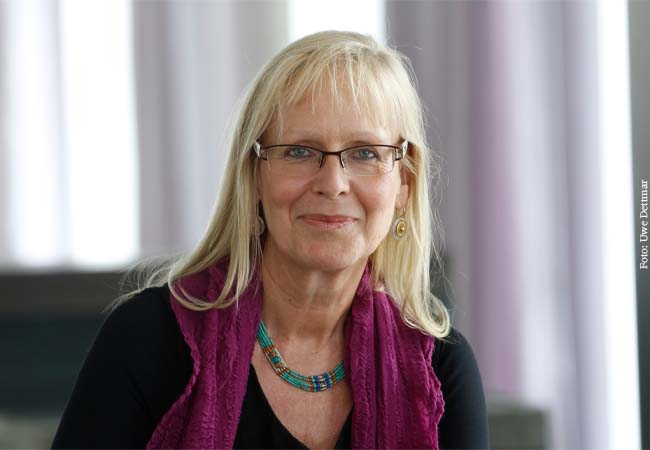
On December 20, 2022, the Taliban issued a ban on women attending Afghan universities. Since taking control of the country again in 2021, women’s rights, in the field of education especially, have been massively restricted. A foreseeable development, says ethnologist Prof. Susanne Schröter, director of the Frankfurt Research Center on Global Islam (FFGI) at Goethe University. Where does this misogynistic interpretation of Islamic law come from? How can one confront it? What role do the West and neighboring states like Iran play? And – is there hope that something will change?
Professor Schröter, after the Taliban’s renewed takeover of power in Afghanistan: Was it foreseeable that women would be excluded from education?
Prof. Susanne Schröter: Personally, I never understood this naïve idea that the Taliban are inclusive. Why would the Taliban, a group whose understanding of a gender order is extremely patriarchal, become inclusive? Their normative framework is based on the fundamentalist Islam of the Deobandi school, in which gender inclusivity does not exist. Segregation is as constitutive of this kind of Islam as other curtailments of women’s rights. At no point could there ever have been any doubt about that.
And with that those who celebrate their role as liberators from other powers turn into those who restrict the rights of half their own population – women.
Here it is necessary to define the understanding of freedom. Looking back at recent history, we see that most Afghans primarily understand freedom as freedom from outside occupiers. They made life difficult for the British, drove the Russians out of their country, and, in the 20th century, fought their own secular elite as well. When it comes to shaping their own society, the majority of the population does not want to be patronized by foreign countries.
It is precisely this distinctive religious and cultural self-confidence and the will to defend the own culture against outside influence that unites the country’s different ethnic groups. In this context, freedom always means self-determination, the ability to follow one’s own norms and values. The concept of gender equality is rejected.
Also because of the big differences between rural and urban regions?
Yes. In 2010, 33 out of the country’s 34 provinces were ruled by Taliban shadow governments – and they did not face popular opposition. This was at a time when the Americans were actually already contemplating withdrawing their troops.
One of the reasons the Taliban gave for issuing the ban was that female university students did not follow the strict dress code and sometimes made their way to the universities without a male chaperon. This, they say, contradicts their interpretation of Sharia law. Why is it that Islamic law is interpreted differently in other Islamic countries, including in neighboring Iran?
There is no single codified Islamic law. Sharia is a matter of interpretation. What actually ends up being incorporated into the national legal canon varies greatly from country to country. In some cases, the law even follows secular ideas.
Tunisia, for instance, enacted legislation in the area of family law that does not follow the orthodox Islamic view. It was secular politicians and women’s rights activists, who pushed this through. The key question is always whether and on the basis of what arguments women’s rights can be enshrined. Several years ago, I attended a training of civil servants, including those from the Sharia authority, in Indonesia. At that time, the main argument against violence against women was that this type of violence endangers harmony in the family – something that was unacceptable to everyone.
The political landscape in Afghanistan is completely different. Here, the outlawing of domestic violence, for example, was never able to gain acceptance.
So, the argument that violence against women disrupts and/or endangers family life doesn’t work in the Afghan setting?
No. That is, however, not only because of Islam, but tradition, too. The Pashtunwali, the Pashtun code of norms, for example, is largely based on patriarchal notions of social order, including patriarchal notions of honor, which are closely linked to men controlling both girls and women.
Iran: The savior of Afghan women?
Shortly after the Taliban imposed the ban on women attending institutions of higher education, Iran issued a statement saying it would accept Afghan women into its own universities – potentially an interesting option for many Afghan women academics. Not only is the culture in Iran similar to their own, it may also be more „acceptable“ to return to Afghanistan after studying in Iran.
That is true, at least as far as the Hazara are concerned, who, as a Shiite minority, are not well-liked in Afghanistan.
Incidentally, it was not always possible for women to study in Iran. After Khomeini took to power, women were expelled from universities. That situation has since changed fundamentally: Today, women outnumber men in many fields of university study.
As an ancient and advanced civilization with a very high level of education, the proportion of women studying at universities in Iran has always been high. Apart from that, Iranian women are also extraordinarily rebellious. Secular Iranian women have been rebelling virtually from the moment Khomeini came to power even though they face dire consequences: arrest, imprisonment, torture, death. They do it anyway – and I personally think it’s truly admirable how they stand up for freedom.
The same cannot be said about Afghanistan. Here, you can find a handful of brave women who take to the streets. In Iran, we’re talking about tens of thousands. The desire for change is completely different. And developments in Iran also show a completely different compatibility with values we as Westerners consider good and right: namely, women’s rights, including a notion of modern lifestyles. That does not exist in Afghanistan.
Do you think Iran would have extended this invitation if it were not facing its own crisis?
Of course not. Iran’s intention in making such offers is to score points internationally. It is obvious that the country has to do something to cultivate its image. After all, no one wants to be the pariah all the time. And with that, Iran is now coming into play as the savior of Afghan women.
How can one explain this ban to Afghan girls and women who have not known anything else in their lives or, at least, in the last 20 years?
The current situation is extremely bitter for girls in Afghanistan, who are no longer able to go to school. That being said however, I would also like to point out that we received a sugarcoated image of the time of the 20-year mission. In fact, even before the Taliban’s return to power, many parents did not send their children to school because of attacks and the risk faced by their children as a result.
Put differently: In the past 20 years we have stood up for an image of the Afghan woman shaped by our own normative system?
Correct. Of course, there have always been NGOs in Afghanistan, even during „Emirate 1.0,“ but most of them were active abroad. Moreover, they were mostly small groups.
Interestingly enough, due to the similar modernization projects, for many Islamists in Afghanistan and Iran, both contemporary Russia and its predecessor, the former Soviet Union, have always belonged to the „West“.
The Taliban do not distinguish between socialist or post-socialist and capitalist „outsiders“ and their norms?
No. Socialism doesn’t interest them and therefore does not constitute a category for them. In Afghanistan, emancipation is rejected as a foreign concept.
What options do Afghan women have now? What can those who insist on their right to education do?
The current situation is extremely bad and women have very little possibility of changing anything.
Honestly speaking, I am not sure whether it really helps if UN organizations continue to put their finger in the wound and admonish. My hope lies elsewhere, with other Islamic countries. Qatar, for instance, the country that has played an important economic and political role in Afghanistan since the Taliban took power. Although women’s rights are also severely restricted in the emirate, the situation here appears downright liberal when compared to Afghanistan.
What role is China playing?
China pursues economic interests and does not interfere in other countries’ internal affairs – a very successful approach. The Western strategy of reinterpreting economic interests as supposedly driven by human rights is easily recognized and rejected outside Europe. The constant moralizing and the notoriously raised index finger that politicians use to call other states‘ attention to democratic deficits are extremely unpopular and rightly perceived as neocolonial posturing.
Does this mean that the only means of action left to the international community, i.e. the UN, is to impose sanctions and apply other classic „carrot and stick“ initiatives?
The UN has greater credibility, but sanctions should not be overestimated. As I said before, Muslim states might be able to exert more influence, or alternatively also Muslim scholars, who offer other interpretations of Sharia law and legitimize the education of girls as conforming to Islam. Such approaches can be justified with references to the Koran – and this is often the decisive factor.
Are you hopeful that things will take a turn for the better?
Not for the immediate future, no, but let’s take a look at what’s happening in the Islamic world. For a few years now, for example, women in Saudi Arabia have been allowed to move about freely without a veil, to drive and to vote.
For change to be accepted, either Islamic theology must evolve or a strong secularization movement must emerge. Today there exist several emancipative theologians who have developed promising approaches, and there are also tendencies toward secularization.
Do you think the international community is sacrificing the rights of Afghan women at the altar of the country’s immense resources?
I cannot detect any great pressure on the Taliban. Money continues to flow into the country, including from Germany, if only for humanitarian reasons. After all, no one wants to let the local population starve. The fact that the Taliban will profit from the foreign money is accepted. Germany, too, is helping to finance the Taliban.
Would you like to see more pressure exercised?
Are you referring to the feminist foreign policy propagated by our foreign minister [Annalena Baerbock]? That is clearly not working at all. We have to recognize that we have no leverage in Afghanistan. I for one don’t believe that the imposition of sanctions, as proposed in such cases, will have any great effect. So far, no government has been toppled by sanctions. Sanctions are circumvented and the world community is anything but united on the practice.
I don’t believe foreign and economic policy can be guided solely by moral values. If we only want to cooperate with countries that share our moral conceptions, then we would have to set up a completely different energy supply system, for example, massively expand nuclear energy usage and start fracking in northern Germany. Instead, we have chosen to cooperate with dictators and patriarchal emirates.
Although the political establishment purports to pursue a values-based foreign policy, that is not the case. The grand phrases are nothing but rhetoric.
„The importance of Europe as an intellectual free zone for the constructive development of Islamic ideas has perhaps played too small a role so far“
The Academy for Islam in Research and Society (AIWG) at Goethe University conducts interdisciplinary research and transfer activities with a focus on Islamic-theological studies and Muslim life in Germany. It connects all faculties for Islamic theological studies or Islamic religious pedagogy located in a university in Germany. The academy addresses issues of social participation by including perspectives related to religion.
AIWG director Prof. Dr. Bekim Agai also commented on the university ban on Afghan women:
“What we have here is a powerful example of using religion to pursue power-political interests and to oppress women. This makes it all the more important to adopt and make heard those voices that oppose such interpretations of Islam from an Islamic perspective. In doing so, one must by no means absolve the regional environment of its responsibility. At the same time, however, in recent years, Europe, too, has become a place for the articulation of Islam. In various projects carried out here at the AIWG, we have engaged in questions related to the normativity of classical texts against the background of modern life experiences in diverse, democratic societies. One thing that has emerged is the importance of Europe as an intellectual free zone for the constructive development of Islamic ideas. This has perhaps played too small a role in the debates and the European self-image so far.”
Questions: Leonie Schultens


